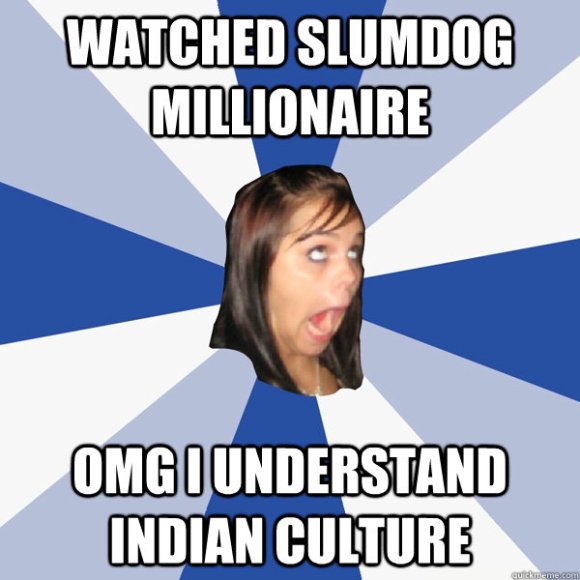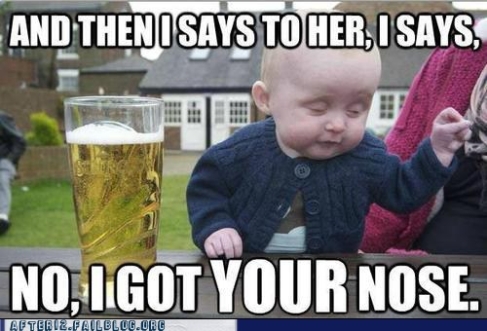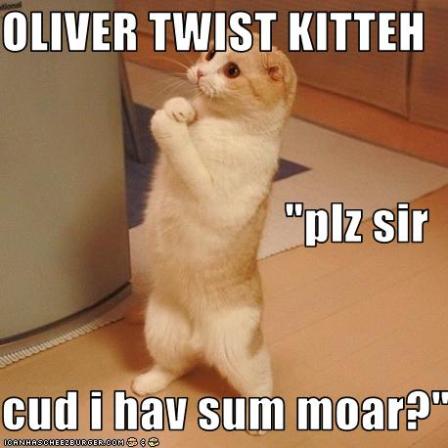I feel overwhelmed writing this week because there’s the film, Slumdog Millionaire (Danny Boyle & Loveleen Tandan, 2008), and the book, Q & A (Vikas Swarup), but there’s also the obvious connection to Dickens’ Oliver Twist. Adaptations and appropriations galore.
One of the first connections that I made between the two novels, Oliver Twist and Q & A, was that they were both very cinematic. Dickens and Swarup used film terminology and described different film techniques (although Dickens didn’t know it at the time) in their novels. This, in turn, probably had something to do with the quick response to adapting each novel (more quickly for Q & A since it didn’t have to wait for the technology to be invented).
Besides this, both novels had a protagonist that could leave his place in society, in ways that other characters could not. Because Oliver was actually rich, he could go between the different classes with ease. Ram Mohammed Thomas could also move through different groups in society because of his name. With a Hindu, Muslim, and Christian name, Ram was able to blend into the different cultures and religions through carefully selecting which name he used to identify himself. I was surprised though, that this interesting name did not carry over to the film. Instead of Ram Mohammed Thomas, the protagonist was named Jamal Malik — and he was clearly identified at the beginning of the film as being a Muslim. Although religion didn’t seem to be as important in the film, I still missed the literary name. However, the explanation and different uses of the name in the novel would probably have made the film much, much longer, so I suppose that’s why it might have been cut.
Although Oliver, Ram, and Jamal are similar, they are also all very different. Oliver stays angelic and pure throughout the novel, but Ram and Jamal participate in some pretty seedy acts. However, Ram and Jamal are relatively angelic in comparison to the other characters presented in their respective settings. A special difference that Ram and Jamal have though, that isn’t a factor for Oliver, is the ability to speak English. Just like Oliver’s purity, English is the thing that sets Ram and Jamal apart from any other street rat. The ability to speak English saves Ram and Jamal numerous times, just like Oliver’s innocence saves him.
A similarity between the two novels and the film is the identity and life of the city. London and Mumbai are both bustling with life, and act as characters themselves. These cities show both goodness and corruption, and the great divisions between the very rich and very poor. The slums of India are their own, vast network with different rules and ways of life, just like Oliver’s experience living within a crime network. Although the London crime community seems vastly smaller than that of the Indian slums, Oliver, Ram, and Jamal all grow up in seedy, fringe societies that have their own mores.
Another extremely obvious similarity is that all three boys are orphans who go from rags to riches. However, each orphan has a different situation. Oliver is orphaned after his mother dies in childbirth, but later finds living relatives. Ram is abandoned by his mother for unknown reasons, and we never of learn her identity or whereabouts. Jamal however, is the most different. He has a living mother at the beginning of the film, and even a biological brother — Salim. His mother is murdered when he is very young though, and this is how he and his brother become orphans.
The novels are more similar to each other than the film (once again) in that their endings are both so neat. We get this nice picture of how great Oliver’s life is now, and see that the good have all triumphed while the bad have gotten what they deserved. Ram’s life has a similar, neatly wrapped ending, with the good people winning and the bad losing. The film, however, leaves the ending unknown. Although we know that Jamal has won the money and the girl, and that his brother and the other baddies have taken some hits, we don’t know any more than that. I like the lack of the neatly packaged ending, although this was obviously replaced by the Bollywood-like dance sequence.
This post is getting quite long, so I’ll end with a few interesting pieces of trivia:
Dev Patel — the actor who played Jamal — was born in London, England, to Indian parents.
The film cost $15 million to make, and was almost released straight to DVD. Lucky for Fox Searchlight though, it wasn’t. In total, Slumdog raked in $377 million worldwide.


